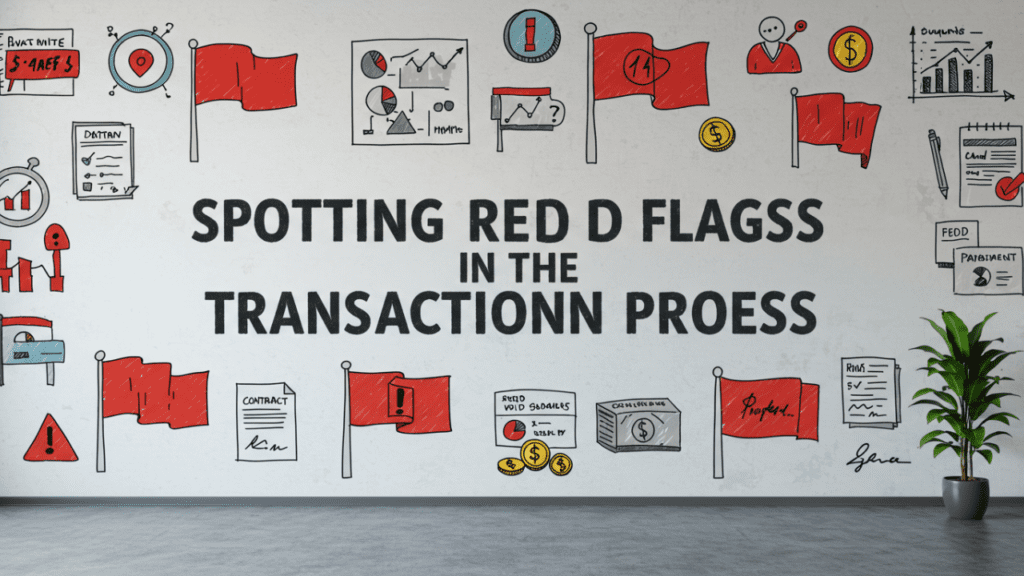Purchasing a secondhand car in 2025 allows for many opportunities, but also poses the danger of getting scammed. The tricks automotive fraudsters use tend to change in sophistication, technologically advanced, nuanced, and intricate.
Whether you buy a vehicle from an online market, a shop, or a private individual, knowing when and how to spot a potential red flag is essential for an informed and safe purchase.
Here, I will help you navigate how to browse for the potential warning signs, check the legitimacy of the car, and take the appropriate defenses to protect yourself during the purchase.
Understanding the Used Car Scam Landscape in 2025
Like any other deceitful tactic, scams using cars involved the unregulated purchase and sale of automobiles. Car frauds have been common for a long time, but today’s tech advancements allows for greater deception. Today’s car scams are relatively more advanced, making scams easier and more pervasive.
How Scams Have Evolved
-
Online Scams: Scams targeting facebook groups, Craigslist, or eBay have gotten more sophisticated, with fake listings touted for vehicles priced significantly below the market average with little to no supporting evidence.”
-
Title Washing: This type of business practices involves manipulating the history of the vehicle by changing its title, making a vehicle appear clean when, in fact, it has had previous accidents or holds a salvage title.
-
Odometer Tampering: An piece of scam which concerns rolling back the odometer is still popular. Odometer tampering is making alterations to the odometer, high mileage cars are modified to display a fraction of the true number thus making the car appear ‘low mileage’ and almost “new.”
-
Cloned VIN Numbers: This is a more sophisticated level of fraud wherein a vehicle identification number (VIN) issued to a roadworthy registered vehicle is fraudulently used on a stolen or rebuilt vehicle, thus creating a fictitious vehicle.
In this rapidly changing world, it’s important to know how to protect yourself and stay informed about modern scams.
Red Flags to Look for When Buying a Used Car
Unbelievably Low Prices
A scam overture usually shows itself when a price is put way beneath the market value of a specific make/year model. Such attempts are primarily made by scammers who want to entice potential buys with pseudo “too good to be true” signals.
Why It’s a Red Flag:
The price of scammed used cars is low in extraordinary numbers as an approach to get the buyer’s attention without taking any further details into consideration.
If something seems to be a very good offer, it usually is not genuine. Cars that are sold at prices much lower than their actual worth likely come with problems that the seller is trying to hide from the buyer.
What You Should Do:
-
Compare prices: Perform a market valuation for the other models. Look for the different listings of the model you might want to buy on multiple websites.
-
Ask questions: If the seller does not have a good reason for why the price is lower than the market average or fails to offer further details about the vehicle, it is advisable not to do business with that seller.
The Seller’s Reluctance to Provide Documentation
It is a must to collect the vehicle’s title, registration, the car’s history, and ownership proof while buying a used car. Any logical seller would have these documents readily available.
Why It’s a Red Flag:
A dealer who does not want to provide the documents is most likely trying to hide the vehicles real document, stop you from finding the vehicles history and having the vehicle reported as an insurance write off vehicle, accident damaged vehicle or stolen vehicle.
What You Should Do:
-
Demand documents: Always request the car’s title, maintenance history, and proof of ownership.
-
Don’t proceed without paperwork: If the seller is not willing to provide these, then that is a good place to part ways and search elsewhere.
Inconsistent Vehicle Details
While checking out a car for sale, the seller may have advertisements that are not necessarily correct. The year, model, and other features listed might be different from the actual car.
Why It’s a Red Flag:
The seller is using photographs of a different vehicle or is attempting to mislead you with advertisements. Even if the car is different from the advertisement, it is likely to face an out-of-order situation.
What You Should Do:
-
Inspect the car carefully: Make sure to examine every detail of the car; everything that is within and outside of the vehicle. Does the vehicle match with what is shown in the listing?
-
Compare listings: Make sure that the details in the listing are consistent with what you observe at the vehicle.
Pressure to Act Fast
One method of a scammer is quick decision making. They will steer you into the situation whether by engaging other buyers’ interest or introducing a limited time offer.
Why It’s a Red Flag:
Fraudsters frequently try to get people to act quickly, so they don’t have time to analyze the vehicle or negotiate smartly with the seller.
Scammers try to get you to make the deal with them without giving logical thought as to whether the deal makes sense or not.
What You Should Do:
-
Take your time: Do not make hasty decisions as a legitimate seller will most likely make the transaction smooth and easy, hence there is no need for a buyer to feel pressured.
-
Walk away if pressured: If the deal seems too good to be true, then perhaps it would be better if you stepped away from the deal.
How to Verify a Car’s Authenticity
Get a Vehicle History Report
This document will specify if the car was in an accident, whose name is currently on the title, and if the car changed owners. It is a great step forward to validating the vehicle you have interest in.
Why It’s Important:
A history report will indicate whether the vehicle has undergone significant collisions, whether the title has been marked with identifiers like salvage or rebuilt, and whether there is any unusual history pertaining to the car.
Carfax and AutoCheck are two companies that provide history reports.
What You Should Do:
-
Obtain a report: Get a report for the vehicle you intend to purchase. If the seller does not want to provide it, consider them suspicious.
-
Check for discrepancies: Seek evidence such as inconsistent gaps of ownership, incomplete documentation, or signs of odometer tampering.
Inspect the Car’s VIN
Vehicles are equipped with a VIN (Vehicle Identification Number) and these numbers are unique to a specific vehicle. The number might have been forged and replaced with another number or copied into a different chassis.
Why It’s Important:
Via the VIN you can tell whether a car is stolen or washed, and whether it has received a title or flagged for something fraudulent.
Furthermore, the Vehicle Identification Number (VIN) is allocated to every vehicle and should correspond with details such as the construction and manufacturer, model, and make of the vehicle.
What You Should Do:
-
Check the VIN: Check the VIN on the dashboard, under the hood and door frame. Cross-check the numbers with the documents the seller hands over.
-
Verify online: Websites like the National Insurance Crime Bureau (NICB) allow for checking if the VIN has been flagged as stolen.
Check the Car’s Service and Maintenance Records
Sellers that take time and detail to prepare pertinent documents will ensure all vehicle maintenance has been recorded in detail. Such documents illustrate the level of care bestowed on the vehicle and can be used to estimate future problems or areas of concern.
Why It’s Important:
Serviced, repaired, and maintained records indicate a well looked after vehicle yet the absence of them may mean because the vehicle has been neglected. A lack of documents may mean concealed past issues while extensive documents may indicate an attempt to mislead the prospective buyer.
Scammers providing vehicle maintenance documents often lack the actual documents needed or if they do, they are often heavily doctored to push an agenda.
What You Should Do:
-
Ask for records: Make it a point to check if the car’s service history has documented service bookings and maintenance schedules so that you can verify if they are actual maintained.
-
Look for patterns: A vehicle that gets repaired over and over frequently within a small window of time should be considered suspicious.
Have the Car Inspected by a Trusted Mechanic
Any person contemplating going through with a deal as presented should first take the time to ensure the vehicle is thoroughly inspected by a trusted mechanic to eliminate the likelihood of underlying problems that may exist.
Why It’s Important:
- A mechanic can address certain car problems, включая frame damage, leaks, or engine issues, that you might not notice.
- To conceal serious car problems, scammers may skip this step.
What You Should Do:
-
Hire an independent mechanic: Bring an independent mechanic you trust so that he can inspect the vehicle in detail.
-
Don’t skip the inspection: A professional eye is key regardless of how nice the car appears.
Spotting Red Flags in the Transaction Process
1. Unclear or Vague Communication
A person selling a car has a good chance of being a scammer if they give vague responses or are not willing to provide clear answers.
Why It’s a Red Flag:
In short, the lack of clear communication is a trademark of a fraudster, given that they are masking a scam.
In fact, an honest seller will engage in the conversation and respond to questions pertaining to the vehicle’s maintenance and repairs.
What You Should Do:
-
Ask detailed questions: In the case where the seller is not willing to give information, disengaging is the next step.
-
Get everything in writing: All agreements, no matter how small, should be spell out clearly in writing and accessible by both parties to reduce the chances of misunderstanding and misrepresentation.
2. Too Much Pressure for an Online Transaction
Untraceable methods of transaction, such as wire transfer or paysafe gift cards, are often used by scams.
Why It’s a Red Flag:
Scammers usually prefer untraceable payment methods because they leave you without a way to recuperate your losses if the deal goes awry.
Legitimate orders should be able to provide documentation such as a bank payment for the transaction which serves as a form of protection.
What You Should Do:
-
Avoid wire transfers or gift cards: Only use secure methods of payment with records that can be tracked.
-
Meet in person: Always plan to meet the seller to physically hand over the payment and securely exchange the goods.
You can also read New car discounts nobody tells you about
My Opinion
As of now in 2025, used car scams take extra time, effort, and an added layer of research with careful scrutiny through each detail and with the tips, coupled with the red flags highlighted throughout the guide, you can outsmart fraudsters and significant scam risk.
The golden rule always applies. If it seems fishy or overly favorable, be wary. Despite being time-consuming, asking questions and verifying details like the car’s history and condition are crucial steps that shouldn’t be overlooked. Stay alert, and you can navigate the used car market safely and buy without stress or anxiety.

